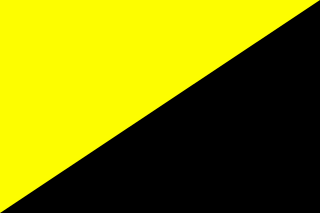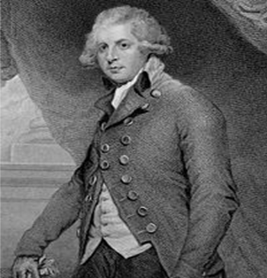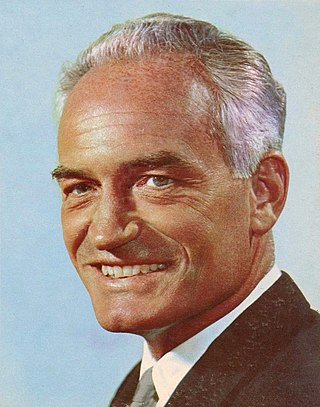
Anarcho-capitalism is an anti-statist, libertarian political philosophy and economic theory that seeks to abolish centralized states in favor of stateless societies with systems of private property enforced by private agencies, the non-aggression principle, free markets and self-ownership, which extends the concept to include control of private property as part of the self. In the absence of statute, anarcho-capitalists hold that society tends to contractually self-regulate and civilize through participation in the free market, which they describe as a voluntary society involving the voluntary exchange of goods and services. In a theoretical anarcho-capitalist society, the system of private property would still exist and be enforced by private defense agencies and/or insurance companies selected by customers, which would operate competitively in a market and fulfill the roles of courts and the police.
Egalitarianism, or equalitarianism, is a school of thought within political philosophy that builds on the concept of social equality, prioritizing it for all people. Egalitarian doctrines are generally characterized by the idea that all humans are equal in fundamental worth or moral status. As such, all citizens of a state should be accorded equal rights and treatment under the law. Egalitarian doctrines have supported many modern social movements, including the Enlightenment, feminism, civil rights, and international human rights.

Murray Newton Rothbard was an American economist of the Austrian School, economic historian, political theorist, and activist. Rothbard was a central figure in the 20th-century American libertarian movement, particularly its right-wing strands, and was a founder and leading theoretician of anarcho-capitalism. He wrote over twenty books on political theory, history, economics, and other subjects.
Libertarians have differing opinions on the validity of intellectual property.

Étienne or Estienne de La Boétie was a French magistrate, classicist, writer, poet and political theorist, best remembered for his intense and intimate friendship with essayist Michel de Montaigne. His early political treatise Discourse on Voluntary Servitude was posthumously adopted by the Huguenot movement and is sometimes seen as an early influence on modern anti-statist, utopian and civil disobedience thought.
Paleolibertarianism is a libertarian political activism strategy aimed at uniting libertarians and paleoconservatives. It was developed by American anarcho-capitalist theorists Murray Rothbard and Lew Rockwell in the American political context after the end of the Cold War. From 1989 to 1995, they sought to communicate libertarian notions of opposition to government intervention using messages accessible to working and middle-class people of the time, and combining libertarian free market views with the cultural conservatism of Paleoconservatism, while also opposing protectionism. The strategy also embraced the paleoconservative reverence for tradition and religion. This approach, usually identified as right-wing populism, was intended to radicalize citizens against the state. The name they chose for this style of activism evoked the roots of modern libertarianism, hence the prefix paleo. That founding movement was American classical liberalism, which shared the anti-war and anti-New Deal sentiments of the Old Right in the first half of the 20th century. Paleolibertarianism is generally seen as a right-wing ideology.

Richard Cantillon was an Irish-French economist and author of Essai Sur La Nature Du Commerce En Général, a book considered by William Stanley Jevons to be the "cradle of political economy". Although little information exists on Cantillon's life, it is known that he became a successful banker and merchant at an early age. His success was largely derived from the political and business connections he made through his family and through an early employer, James Brydges. During the late 1710s and early 1720s, Cantillon speculated in, and later helped fund, John Law's Mississippi Company, from which he acquired great wealth. However, his success came at a cost to his debtors, who pursued him with lawsuits, criminal charges, and even murder plots until his death in 1734.
The nature of capitalism is criticized by left-wing anarchists, who reject hierarchy and advocate stateless societies based on non-hierarchical voluntary associations. Anarchism is generally defined as the libertarian philosophy which holds the state to be undesirable, unnecessary and harmful as well as opposing authoritarianism, illegitimate authority and hierarchical organization in the conduct of human relations. Capitalism is generally considered by scholars to be an economic system that includes private ownership of the means of production, creation of goods or services for profit or income, the accumulation of capital, competitive markets, voluntary exchange and wage labor, which have generally been opposed by most anarchists historically. Since capitalism is variously defined by sources and there is no general consensus among scholars on the definition nor on how the term should be used as a historical category, the designation is applied to a variety of historical cases, varying in time, geography, politics and culture.

Frank Straus Meyer was an American philosopher and political activist best known for his theory of "fusionism" – a political philosophy that unites elements of libertarianism and traditionalism into a philosophical synthesis which is posited as the definition of modern American conservatism. Meyer's philosophy was presented in two books, primarily In Defense of Freedom: A Conservative Credo (1962) and also in a collection of his essays, The Conservative Mainstream (1969). Fusionism has been summed up by E. J. Dionne, Jr. as "utilizing libertarian means in a conservative society for traditionalist ends."
Ayn Rand's philosophy of Objectivism has been, and continues to be, a major influence on the right-libertarian movement, particularly libertarianism in the United States. Many right-libertarians justify their political views using aspects of Objectivism.
Left-libertarianism, also known as left-wing libertarianism, or social libertarianism, is a political philosophy and type of libertarianism that stresses both individual freedom and social equality. Left-libertarianism represents several related yet distinct approaches to political and social theory. Its classical usage refers to anti-authoritarian varieties of left-wing politics such as anarchism, especially social anarchism, communalism, and libertarian Marxism, collectively termed libertarian socialism. A portion of the left wing of the green movement, including adherents of Murray Bookchin's social ecology, are also generally considered left-libertarian.
Propertarianism, or proprietarianism, is a political philosophy that reduces all questions of law to the right to own property. On property rights, it advocates private property based on Lockean sticky property norms, where an owner keeps their property more or less until they consent to gift or sell it, rejecting the Lockean proviso.
Libertarianism is a political philosophy that upholds liberty as a core value. Libertarians seek to maximize autonomy and political freedom, emphasizing equality before the law and civil rights to freedom of association, freedom of speech, freedom of thought and freedom of choice. Libertarians are often skeptical of or opposed to authority, state power, warfare, militarism and nationalism, but some libertarians diverge on the scope of their opposition to existing economic and political systems. Various schools of libertarian thought offer a range of views regarding the legitimate functions of state and private power. Different categorizations have been used to distinguish various forms of Libertarianism. Scholars distinguish libertarian views on the nature of property and capital, usually along left–right or socialist–capitalist lines. Libertarians of various schools were influenced by liberal ideas.
Right-libertarianism, also known as libertarian capitalism, right-wing libertarianism, is a libertarian political philosophy that supports capitalist property rights and defends market distribution of natural resources and private property. The term right-libertarianism is used to distinguish this class of views on the nature of property and capital from left-libertarianism, a type of libertarianism that combines self-ownership with an egalitarian approach to property and income. In contrast to socialist libertarianism, right-libertarianism supports free-market capitalism. Like most forms of libertarianism, it supports civil liberties, especially natural law, negative rights, the non-aggression principle, and a major reversal of the modern welfare state.
The Center for Libertarian Studies (CLS) was a libertarian and anarcho-capitalist oriented educational organization founded in 1976 by Murray Rothbard and Burton Blumert, which grew out of the Libertarian Scholars Conferences. That year, the conference was sponsored by industrialist and libertarian Charles Koch. It published the Journal of Libertarian Studies from 1977 to 2000, a newsletter, several monographs, and sponsors conferences, seminars, and symposia.

For a New Liberty: The Libertarian Manifesto is a book by American economist and historian Murray Rothbard, in which the author promotes anarcho-capitalism. The work has been credited as an influence on modern libertarian thought and on part of the New Right.
Christian libertarianism is the synthesis of Christian beliefs with libertarian political philosophy, with a focus on beliefs about free will, human nature, and God-given inalienable rights.

What Has Government Done to Our Money? is a 1963 book by Murray N. Rothbard that details the history of money, from early barter systems, to the gold standard, to present day systems of paper money.

Libertarian conservatism, also referred to as conservative libertarianism and conservatarianism, is a political and social philosophy that combines conservatism and libertarianism, representing the libertarian wing of conservatism and vice versa.

The Betrayal of the American Right is a book by Murray Rothbard written in the early 1970s and published by the Ludwig von Mises Institute in 2007.









